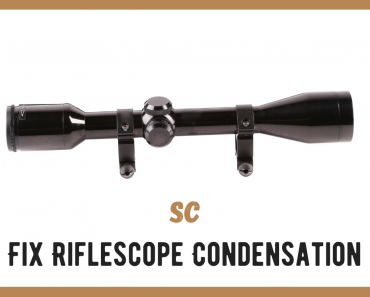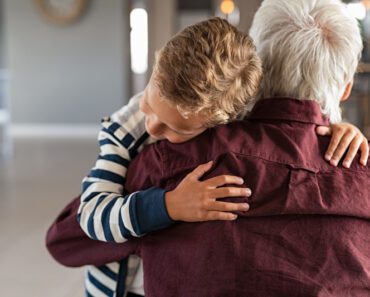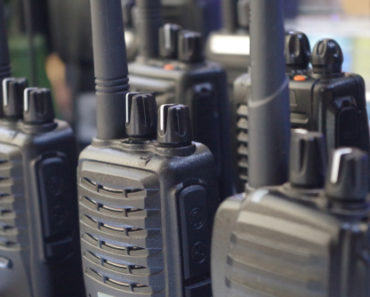Pets are an important part of many people’s lives. We all have a natural affinity for animals, especially in our childhood years. Raising a puppy or kitten is an important part of growing up; learning responsibility and how to care for someone besides ourselves. Those pets become as much a part of the family as any of our siblings; and we’re often much closer to them, regardless of whether we’re talking about a hamster, a dog or a pony.
But what do we do about those pets when it comes to survival? Some make cruel jokes about how the family dog is just one more part of their “emergency rations, just in case;” but could you imagine the upheaval it would cause in your family if you were to kill the family pet and prepare it for dinner? I wouldn’t want to try that. I’d rather give that pet to someone else to eat than try and serve it to my family.
We really have two basic options for our pets, when it comes to a time of survival, as killing and eating them really doesn’t work. The first of these options is to sacrifice to keep our animals alive and the second is to make those animals part of our survival plan. While I’m sure there are a lot of people who will sacrifice for their pets, I’m also sure that it makes much more sense to have animals which can help our families out, when it comes to survival.
Farm Animals
It should be noted that pets and farm animals aren’t the same thing, although it is possible to get just as close to our farm animals, effectively making them pets, as it is to get close to animals which are normally considered to be pets. But the main difference between the two is that farm animals are raised with the understanding that we are raising them for food, while dogs and cats aren’t.
It’s important to make this distinction with your kids, as most kids love animals and will adopt a baby goat or a rabbit, just as quickly as they will a puppy or kitten. Killing a goat or chicken that a child falls in love with can be just as hard on them, as killing their pet dog. But if you raise them with the understanding that those animals are being raised for food, at least it won’t come as a surprise to them. Regular reminders that the farm animals are there to feed your family will help seat that idea in their heads, waiting for the time when they need to realize just what that means.
When it comes time to start slaughtering those animals, be sure to start out with the ones which your children aren’t so attached to. That will give them more of a chance to get used to the idea that those animals are there for food, not pets.
One thing that helps with keeping this distinction is that the farm animals are kept outdoors, usually some distance from the house. Pets, on the other hand, live with you, becoming part of the family. If you have both, the children will become more attached to the family pets, than they will to the farm animals, even if they do have a favorite bunny.
Earn Your Food Independence NOW
Selecting Appropriate Pets
If you don’t have a pet already and you’re thinking about getting one, then it would be a good idea to think about what sort of pet might be useful to have in a survival situation. Dogs can be a great intruder alarm and the larger ones can even help defend the home. Cats can help keep rodent populations at bay. Even chickens can be useful, as they lay eggs. But a hamster? What can that do for you? There’s not even enough meat there to make a plate of tacos.
Of course, not all dogs are good watch dogs and not all dogs would be good to take with you on a bug out. A chihuahua might make a great watch dog, but that’s all they can do. Unless you plan on carrying that chihuahua when bugging out, you’re going to have a hard time taking it along. Leaving it behind isn’t much of an option either, as there isn’t much that’s small enough for that chihuahua to kill.
While there are some definite advantages in having big dogs, from the point of protecting home and family, there are also drawbacks to consider. Big dogs eat more, which can become a huge challenge in a time when you’re going to have trouble feeding your family. You’re better off with a mid-sized dog, big enough to take care of itself, but small enough that it isn’t a huge problem to take care of.
Keep in mind the dog’s coat as well, if you get a dog. Those breeds which don’t shed require more maintenance. You’ll need to bathe that dog and trim its coat from time to time. But that’s not the only concern; is the dog’s coat appropriate for the climate where you live. If you live in the south, you won’t want a dog with a long, heavy coat. That dog will have more problems with the air conditioning being out than you will.
Dogs who can help you with other tasks are useful as well. Some work breeds can help herd sheep and goats, while others can help protect your chickens and rabbits from predators. All of these things are factors, when you’re trying to make sure your pets can survive, along with the family.
But dogs aren’t the only animal which might be useful to have around in a survival situation. I’ve always felt that horses would be ideal to have around, especially in a bug out. While horses can be expensive animals to keep and maintain, that can be more than made up for by their utility. In a grid-down situation, horses can provide you with transportation, as well as power that can be used for farming and a wide range of other industries. Before electricity, animal power was the main source of power in this nation and in the event we lose the grid, it could be once again.
Prepping for Your Pets
If you have pets, then you have a moral obligation to care for them. That obligation doesn’t end if a disaster happens. While you may very well have a problem meeting your family’s needs, that includes meeting the needs of your pets as well. While that isn’t truer if those pets can help you survive; that ability increases the reason to do so.
The first thing this means is having food for your pets. What are you going to do, if you don’t have enough food for those animals? Are you going to take the food that you’ve stockpiled for your family and give it to your pets? Better to stockpile food for your pets as well, so that you don’t have to take food intended for your family.
My dogs eat dry dog food. I’ve figured out how much food they eat per day and calculated that out for a year. If you look in my garage, you’ll find three galvanized metal trash cans, filled with dog food. I use those trash cans so that rodents can’t get into their food and eat it. I’ve seen rats gnaw through a five-gallon bucket lid; but they can’t gnaw through galvanized steel.
This is where keeping horses can be a challenge. Horses eat a lot and that food takes up a lot of space. If you don’t have a good-sized chunk of land, where feed is growing for those horses, or at least access to such a piece of land, you’re going to have a hard time feeding them. The same might be said for other animals as well, but few pets you have will eat like a horse. Whatever types of pets you have, the ability to grow food for them or to harvest it from nature is a real plus in a survival situation.
Don’t stop with food, your pets are going to need medicines too, just like your family. Build a stock of common veterinary medicines that you might need and learn how to use them. Keeping those animals alive is one thing, keeping them healthy is something else.
Bugging Out with Your Pets
Bugging in with pets is one thing, but bugging out with them is something else entirely. You want your pets to be an asset in a bug out, not just when bugging in. That’s one of the reasons I like horses. But dogs can be useful in a bug out as well, assuming that the dogs are big enough and in good enough shape to walk the distance, helping you along the way.
Any pet should be able to carry a pack with their own food, at a minimum. Of course, horses can eat the grass along the way; but dogs can’t. They’ll most likely have to eat dry dog food and should be able to carry it with them, if you have to bug out on foot or abandon your bug out vehicle.
Of course, you don’t carry enough food for the rest of your life in your bug out bag and you can’t expect your family pets to do so either. that means making sure that you have food for them at your survival retreat or in your supply cache, wherever you are planning to go. If the pets are valuable enough to keep, then they’re valuable enough to care for as well.



























